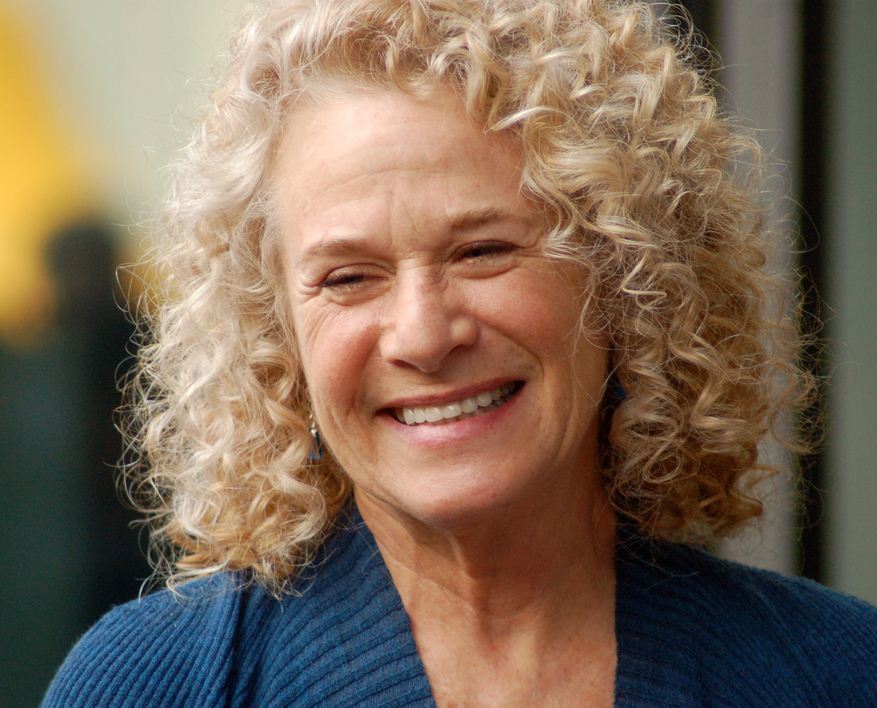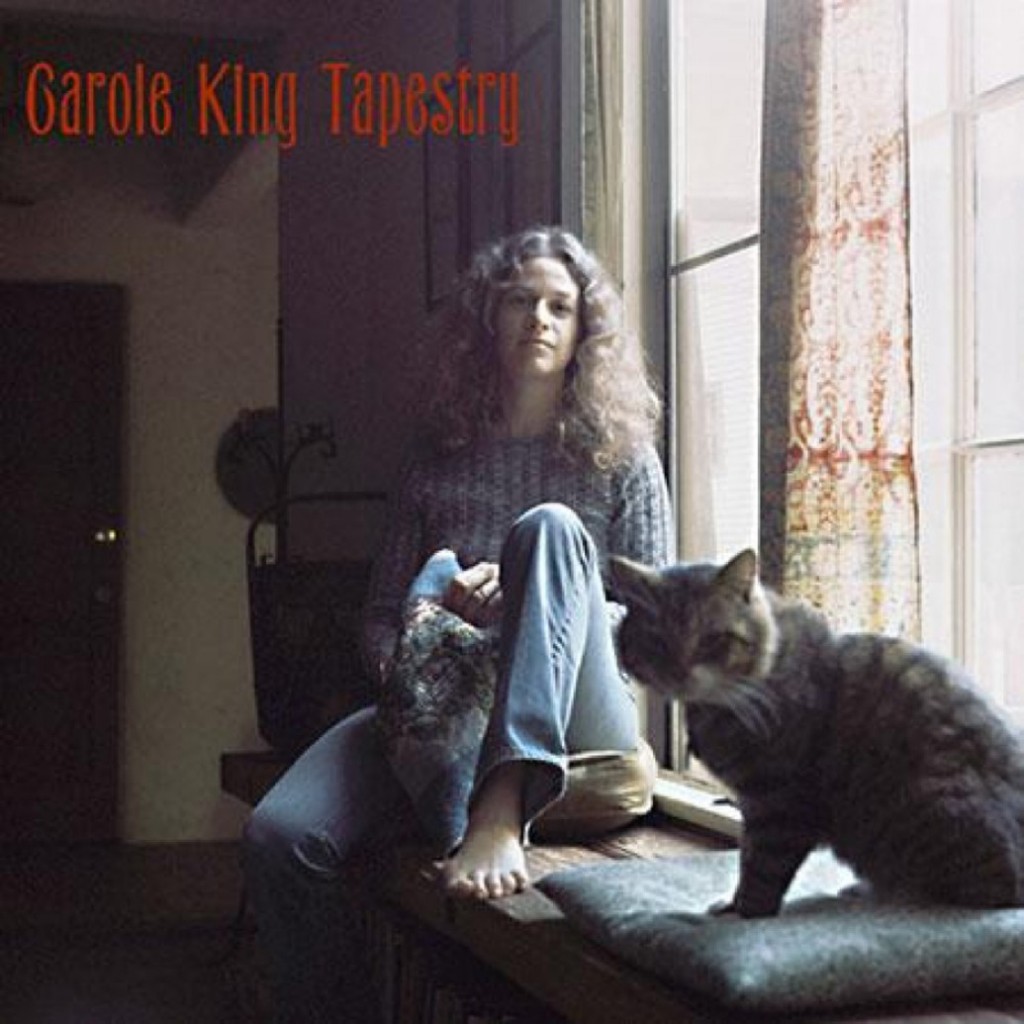SOPHIE NEVRKLA reviews the legendary songwriter Carole King’s July 3rd show in Hyde Park.
45 years ago, Tapestry was released by a young woman called Carole King. She looks out of the album cover with her Mona Lisa smile, wearing a knitted jumper and lounging on a window seat with her tabby cat. Intimate, homespun, and as soulful as they come, it went on to become one of the bestselling albums of all time. 25 million copies have been sold worldwide, though even more people hold it in a special place in their heart (myself included). On July 3rd in Hyde Park, Carole King performed the whole album live. Near the beginning of her set, she smiled out at the audience and said ‘Hey, this is what 74 looks like.’ The sighs and chuckles of the crowd were audible. The night was heavy with a sense of happy nostalgia, tinged with the sadness of lost youth. It is obvious that King feels this too – at one point, a younger version of herself appears on the screen behind her and sings the first verse and chorus of ‘(You Make Me Feel Like) A Natural Woman’ before 74-year-old King takes over.
A short video is played before the set begins, with Tom Hanks, Elton John, and fellow musicians like James Taylor paying tribute to the singer-songwriter. ‘I cannot thank her enough,’ says Elton John ‘she is the reason I wanted to write songs.’ As the unmistakeable piano chords of ‘I Feel the Earth Move’ ring out across the park, King begins her set. A song about the unleashing of sensible, conservative American girls’ collective sexuality, King unleashes the audience too: the crowd (mostly in their 50s+) suddenly begin to dance, virtually everyone singing along, mimicking the soulful backing singers and musicians who sway onstage.

King replicates the arc of the album live – a rare feat for bands performing older repertoire. Many rearrange tracks to cater for a live audience, not wanting to put slow songs together, for example, for fear of lulling the crowd into a state of disinterest. Carole King does not adhere to this rule of thumb, launching into ‘So Far Away,’ straight afterwards, a lament to an absent lover. ‘You’re so far away/ Doesn’t anybody stay in one place anymore?’ King asks, mournfully.
One of the wonderful things about Carole King’s song writing is that her love songs are nebulous. Whilst she often deals with romantic love, the songs are not always overtly sensual in tone – ‘So Far Away’ was played at Amy Winehouse’s funeral; ‘You’ve Got a Friend’ (which King later plays), is described by James D Perone as discussing a ‘universal, brotherly/sisterly, agape type love of one human being for another, regardless of gender’; ‘Where You Lead’ was originally written as a stand by your man lyric, but was re-recorded as the theme song of the Gilmore Girls, an American TV show about the bond between a mother and a daughter (King sings it tonight as a duet with her daughter Louise Goffin). This sense of love, regardless of boundaries of any kind, was reflected in the audience; people laughed and cried with King, and mothers, daughters, friends, and lovers could be seen embracing throughout the show.

Indeed, as King moves through the rest of the album, the skilfulness of her writing is even more apparent live. The simplicity of the production and arrangement means that the songs are stripped back – all there is to focus on is the voice and its message, and King imbues every word with the emotional weight that it requires. Tapestry is true to its name – King weaves different threads together, creating pictures and situations that are various and yet somehow match up. On ‘Beautiful’, King sings about the importance of positivity and inner beauty: the verses, which focus on unhappy people she sees around her, sound sombre, with their low pitch and minor key, before they shift into the uplifting, major key of the motivational chorus. ‘Tapestry’ is a biblical vision of a song – King’s writing is at once lyrical and narrative: ‘My life has been a tapestry of rich and royal hue/ An everlasting vision of the ever-changing view/ A wondrous, woven magic in bits of blue and gold/ A tapestry to feel and see, impossible to hold.’ Whilst the song’s meaning becomes more and more oblique (it has been interpreted as a song about first love as well as about death and ageing) the sophistication of King’s lyrics is undeniable: they are the ‘wondrous woven magic’, the album itself the ‘everlasting vision’ of the life that, for all of us, constantly changes and transforms itself.
As King moves towards the end of her set, she sings a medley of her earlier works from her days as a songwriter. Classics such as ‘It Might As Well Rain Until September’, ‘Take Good Care Of My Baby’, and ‘Up on the Roof’ are just some of the 118 hits that King wrote from 1955-59, and are imbued with a new meaning through her voice. Regardless of who made the songs famous, these songs belong to her. She effortlessly puts her own, unique, earnest stamp on everything she writes.
King ends by singing ‘You’ve Got a Friend’ for the second time, and without her backing band – just her alone with a piano. ‘I like it better when you sing it!’ she laughs, pointing her microphone towards the audience. The thousands of people in Hyde Park join together: ‘You just call out my name/ And you know wherever I am/ I’ll come running to see you again.’ The concert has been a mutual exercise, and as these words ring out over London, she sings them for us just as much as we sing them for her.




